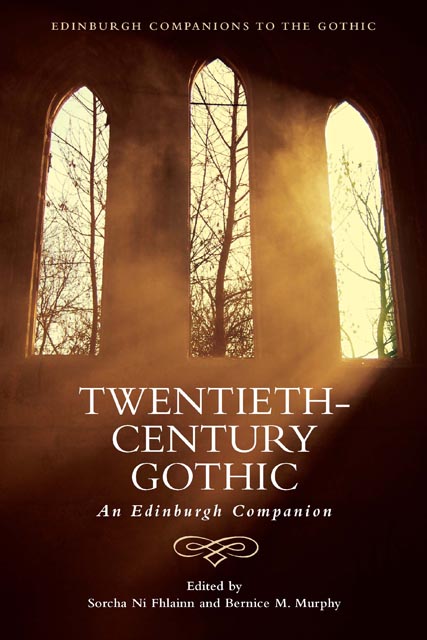14 - Troubling Legacies: African American Women’s Gothic from Zora Neale Hurston to Tananarive Due
Published online by Cambridge University Press: 18 November 2022
Summary
In Octavia Butler's neo-slavery novel Kindred (1979), the protagonist, Dana, a young writer living in California in 1976, finds herself repeatedly dragged back to a plantation in early nineteenth-century Maryland every time her white, slave-owning ancestor Rufus finds himself in mortal danger. Due to her skin colour, she must navigate the misery and dangers of slavery, and her inability to control when she travels in time further exacerbates the issue. What is more, each time she returns to the antebellum South, those around her become increasingly disturbed by her uncanny youth, engendering mistrust and suspicion. A few hours in 1976 seem to correspond to years in the nineteenth century, meaning that the other characters age, while she looks exactly the same. Rufus in particular thinks that Dana is ‘something different. I don't know what – witch, devil’, but the book itself is careful to avoid confirming whether she can command any kind of supernatural powers, despite her time travelling. If anything, her movement between eras exemplifies the slave-owner's power over her, and not her own command of otherworldly forces.
Kindred therefore invokes but also denies associations with Gothic imagery that, as this chapter demonstrates, is racially inflected, and that many twentieth-century black academics and commentators saw as problematic and retrogressive. It does so, however, while still making use of Gothic supernaturalism as a means of narrativising its fundamentally pessimistic view of the unexorcised presence of past violence in a present that sees itself as liberated and progressive. As this suggests, and as this chapter argues, Kindred is emblematic of a distinct ambivalence towards Gothic tropes and conventions in twentieth-century fiction by African American women. From Zora Neale Hurston's engagement with Southern and Caribbean hoodoo, voudou and conjure in the 1920s, to Tananarive Due's visions of successful young black women haunted by the very real presence of racialised violence in the American 1990s, African American women's Gothic fiction walks a perilous line. These texts reject the ultimate optimism of traditional Female Gothic plots, as well as the conventional demonisation of black characters as avatars of Gothic darkness. At the same time, they acknowledge and dramatise the continuing usefulness of Gothic imagery and narrative tropes in excavating, and moving beyond, the horrific history of race relations in the Americas throughout the twentieth century and beyond.
- Type
- Chapter
- Information
- Twentieth-Century GothicAn Edinburgh Companion, pp. 228 - 242Publisher: Edinburgh University PressPrint publication year: 2022



